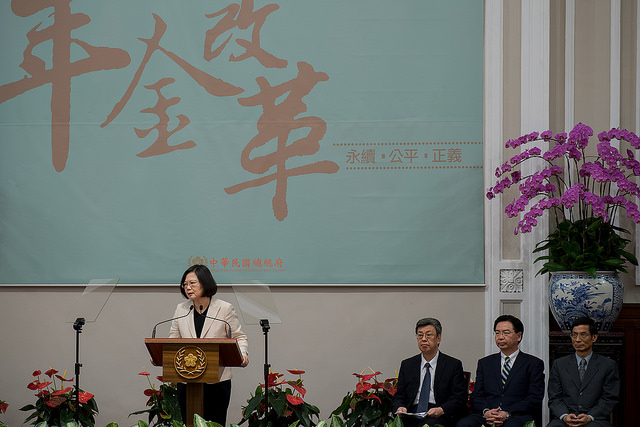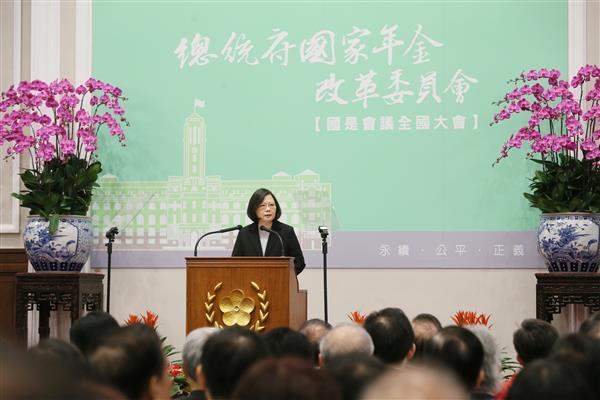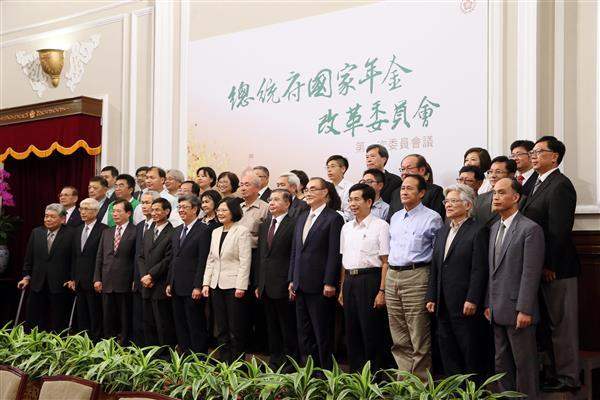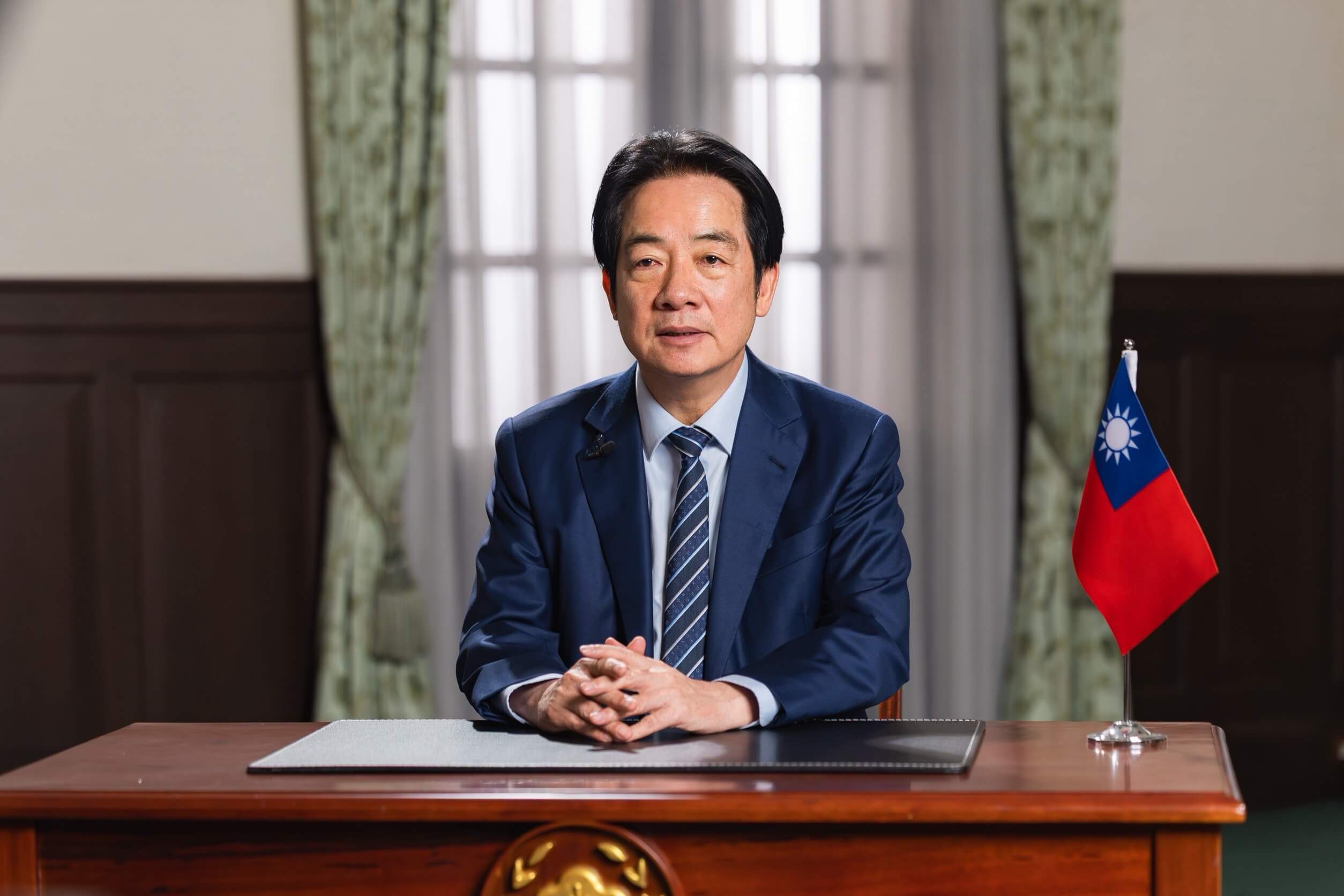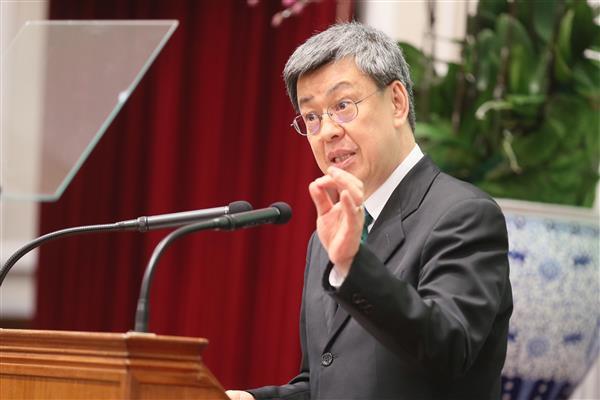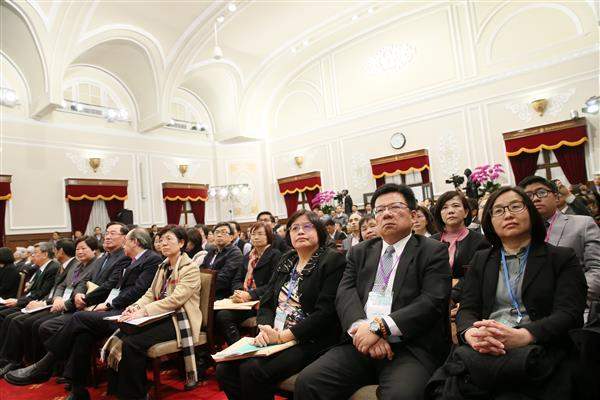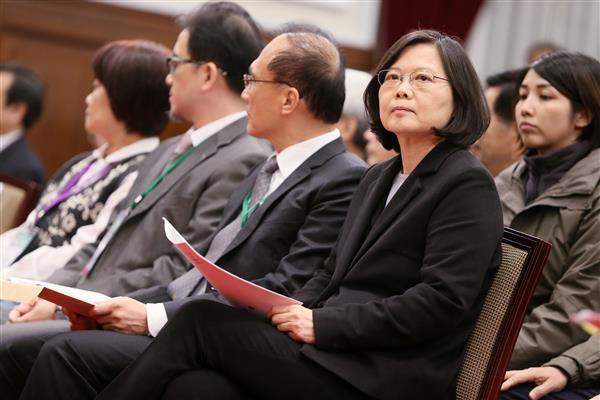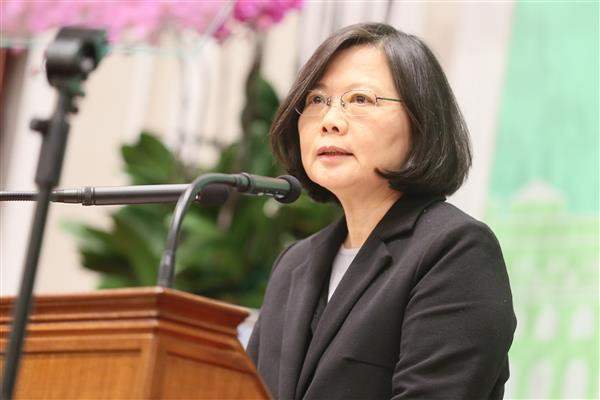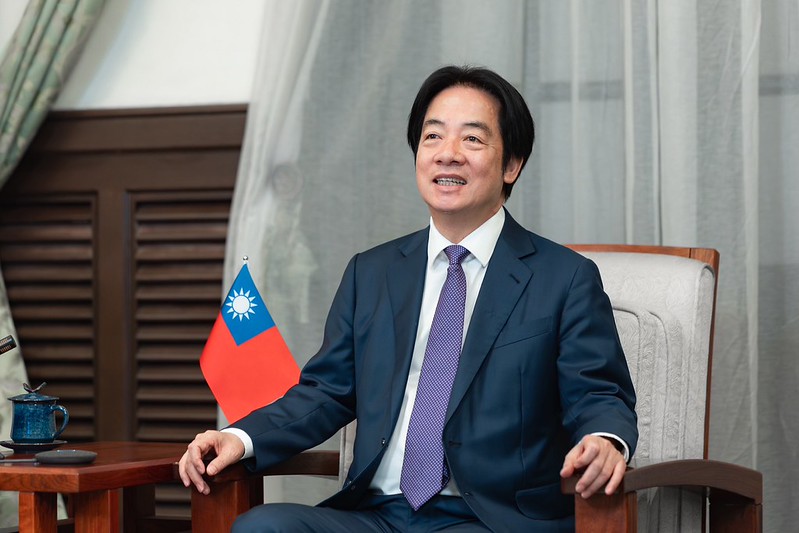News & activities
 News releases
News releases
On the evening of January 22, President Tsai Ing-wen and Vice President Chen Chien-jen attended the closing ceremony of the national congress on pension reform, where they thanked the participants for their efforts to promote pension reform. The president stated that the day's congress demonstrated that the Taiwan society is capable of engaging in rational public discourse: "If we can successfully reform the pension system, then there is no reform that Taiwan is incapable of completing."
In remarks, President Tsai said that by holding the national congress on pension reform, we have used concrete action to demonstrate that the Taiwan society is capable of engaging in rational public discourse. She thanked all the Pension Reform Committee members for sharing their valuable opinions, which will improve the reform proposal. She also thanked Vice President Chen for personally chairing the meetings of the Pension Reform Committee since last May, and for actively explaining to interested parties the significance of the reform effort. The vice president's patient and gentle way of dealing with various groups and differing opinions, she said, has been key to the smooth progress of the reform effort, and history will remember the drawings that he personally made by hand to explain the reform to the public.
In addition, President Tsai also thanked Minister without Portfolio Lin Wan-i (林萬億) for bearing the brunt of pressure and criticism, even putting up with being falsely maligned. Despite everything, he chose to take up the responsibility of leading everyone at the Executive Yuan's Pension Reform Office as they solicited everyone's views and molded them into a concrete reform proposal. History will also remember his tremendous effort.
Such tumult always dies down eventually, said the president, who added: "If we can successfully reform the pension system, then there is no reform that Taiwan is incapable of completing." Now that the pension reform congress has been completed, the government will formally put forward a final pension reform proposal and forward a related legislative bill to the Legislative Yuan for deliberations. But we still have a ways to go. A lot of different views still have to be expressed, especially in the Legislative Yuan. With respect to this reform, there are certain principles on which government is insistent, but it will continue communicating with all sectors of society to minimize the impact.
President Tsai stressed that we are acting in line with the collective will of the people to build a more ideal system, and the country is moving forward one step at a time toward a fairer and better future.
Vice President Chen delivered remarks at the very beginning of the closing ceremony. He also thanked participants for spending an entire day contributing their wisdom and sharing their penetrating insights regarding pension reform so that everyone can together seek consensus on the matter.
The vice president stated that the central government agencies responsible for pension reform will most certainly treat everyone's valuable opinions as important reference as they draft legislative amendments in the future, and during this process they will continue to solicit a broad range of opinion. Once everyone's views have been properly evaluated, the government will need to carefully calculate budgetary matters, especially as they impact the economic well-being of individuals, in order to devise a fair way of amending the law that will yield an equitable distribution of wealth.
Vice President Chen also stated that if, due to time constraints, the participants at the congress were unable to fully express their views on pension reform, or if they felt that the chairperson of any particular group did not fully express the views of the group in its report, they are welcome to mail their views in writing to the Pension Reform Office, or to send in their views online or via email and have the office forward their views to the central government agencies in charge of drafting legislative amendments.
The vice president expressed his hope that the agencies involved in this undertaking—including the Ministry of Civil Service, the Ministry of Education, and the Ministry of Labor—can actively complete the drafting of legislative amendments. He also specially called upon the members of the Legislative Yuan and the Examination Yuan ministers without portfolio to bring about the speedy passage of all legislative bills related to pension reform.
